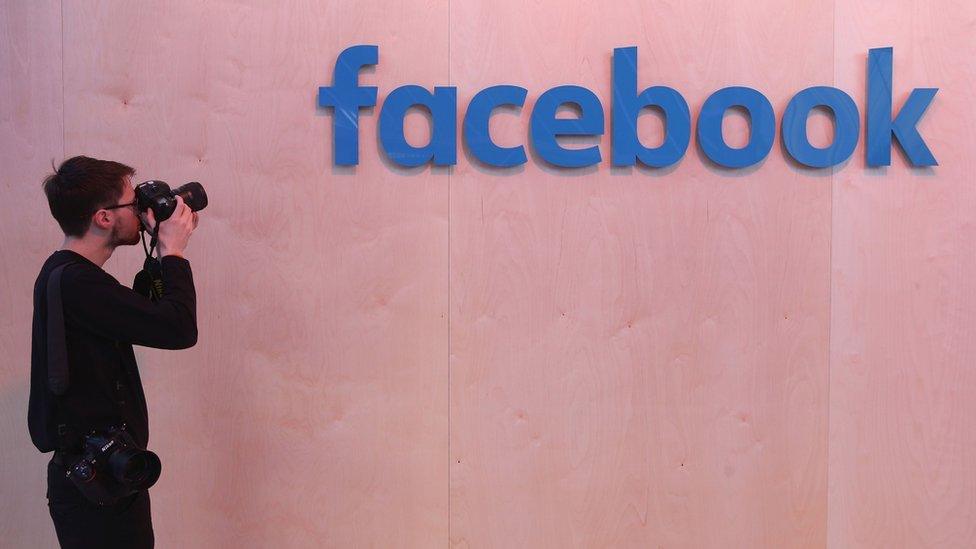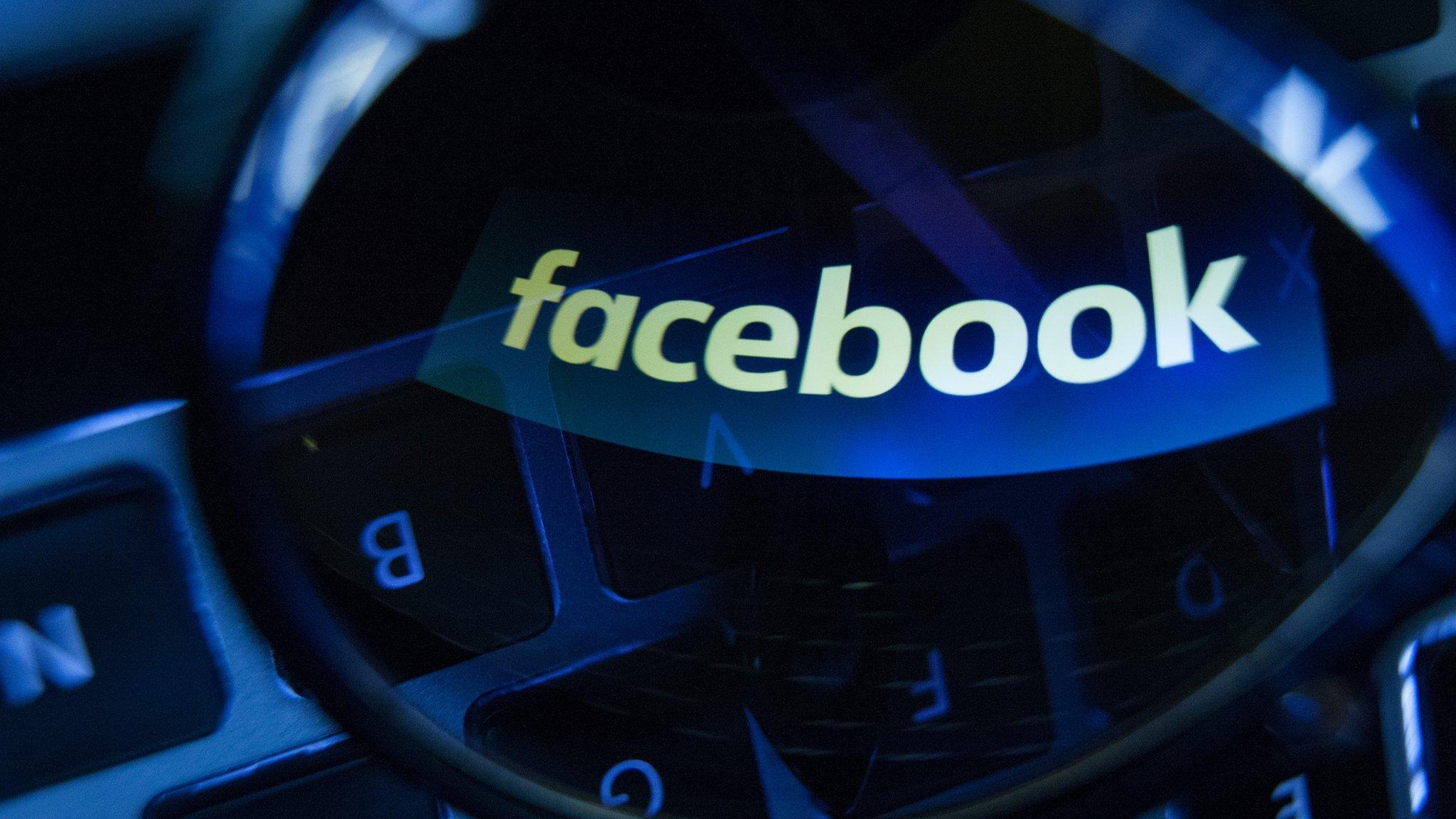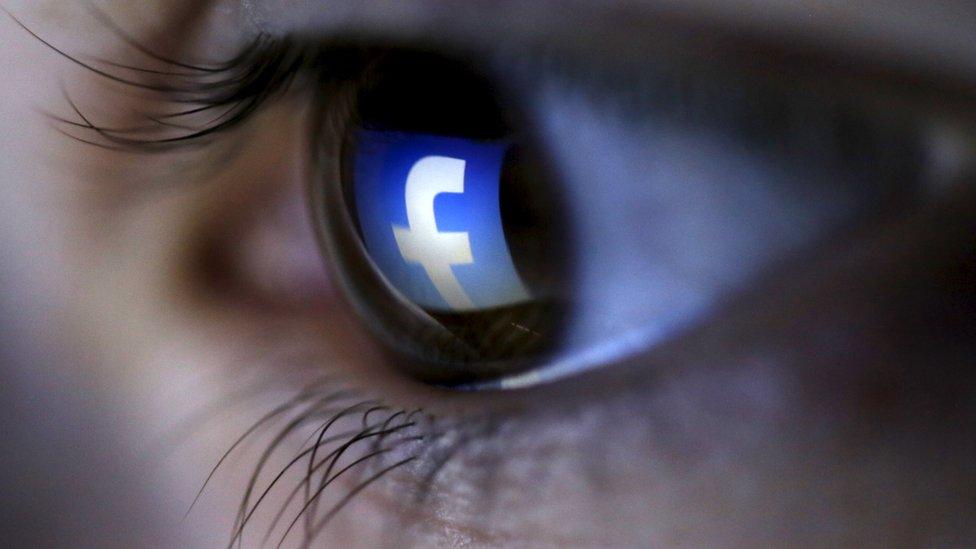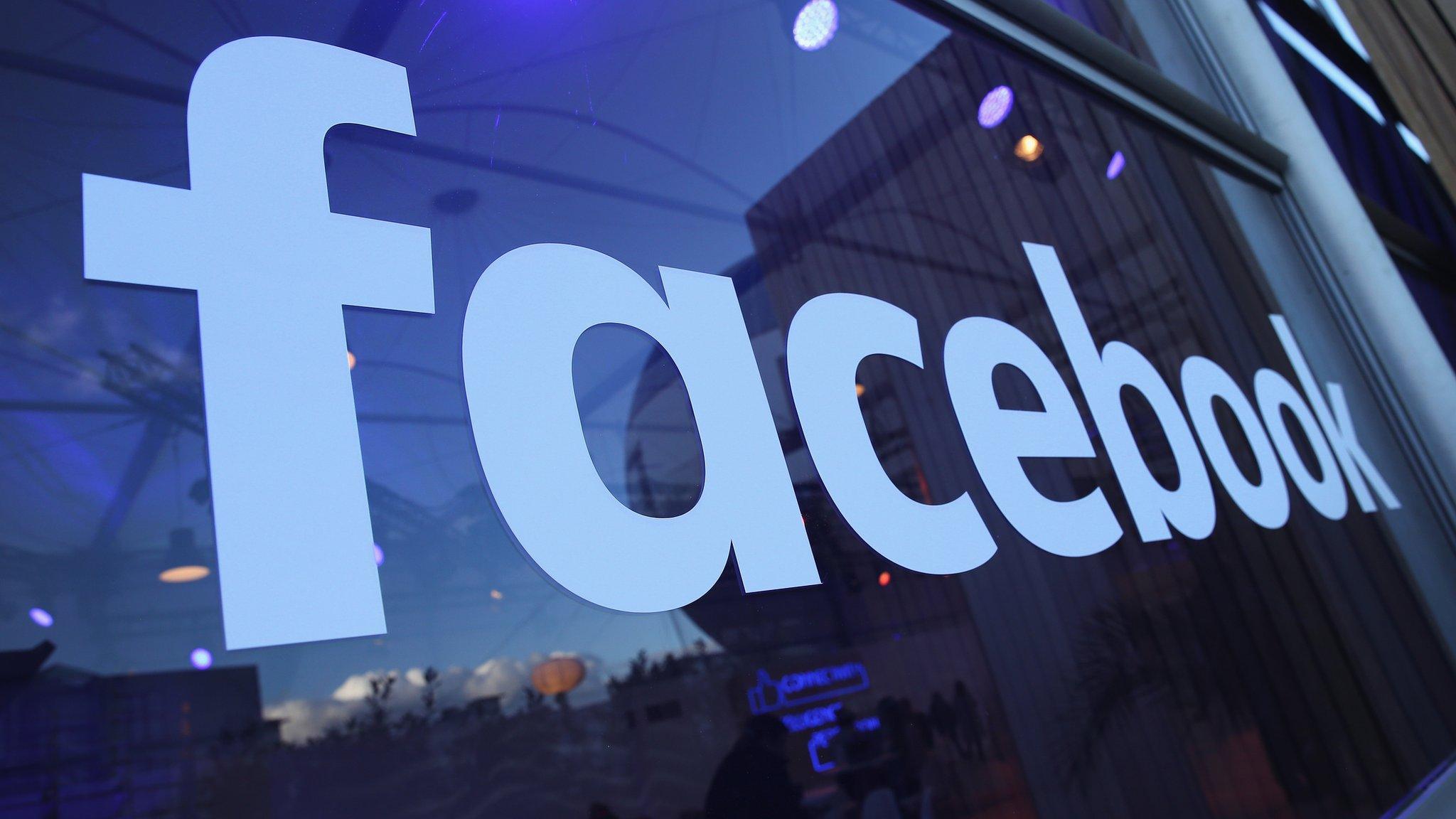Blocked Facebook ads unblocked, for now
- Published
- comments

Man takes picture of Facebook logo
Almost every penny Facebook makes comes through advertising - and so any threat to that model really does put the entire company at risk.
Which is why Facebook is moving quickly to get ahead in its running battle with Adblock Plus, a company that offers software that blocks ads from appearing to its 100 million or so users.
Last week, Facebook made tweaks, external to its news feed so that the way Adblock Plus (and other similar software) “spotted” ads no longer worked, essentially tricking the blocking software into thinking ads were just normal posts.
In response, Adblock Plus - drawing on the open source community - came up with a workaround.
The company wrote on Thursday that “for this round of the cat-and-mouse contest, looks like the mouse won."
The mouse was barely into its cheese when Facebook vowed to hit back.
The firm’s head of advertising, Andrew Bosworth - known as Boz - wrote on Twitter, external that "these new attempts don’t just block ads but also posts from friends and Pages.
"We plan to address the issue."
Blunt instrument
Boz and his advertising team didn’t take long. By Thursday evening, only a few hours after Adblock Plus made its workaround public, the site began rolling out new code that meant Adblock Plus's workaround no longer worked.

Both on desktop and mobile devices, Facebook make its money with advertising
“We’re disappointed that ad blocking companies are punishing people on Facebook as these new attempts don’t just block ads but also posts from friends and Pages," the company said in a statement.
"Ad blockers are a blunt instrument, which is why we’ve instead focused on building tools like ad preferences to put control in people’s hands.”
Adblock Plus is a controversial company. While initial ad blockers were all about stopping annoying, sometimes harmful, pop-up ads - Adblock Plus is a far more sophisticated fare. It’s able to skim out pre-roll adverts on videos, as well as remove some non-intrusive advertising on pages.
Non-intrusive is a matter of opinion, of course - some would consider any advertising a unwelcome part of their browsing experience. Particularly in the case of Google and Facebook who have built their vast fortunes on producing targeted ads that require masses of data collection and tracking.
But it’s why Google and Facebook are free to use - and most certainly always will be. The money has to come from somewhere, and right now it’s advertising.
Adblock's whitelist
Where Adblock Plus stirs real controversy is in its business model.
The software doesn’t block ads on all sites. The company has a whitelist. To get on it, a site has to pay Adblock Plus.
Some call it extortion - the company disagrees, saying it plays an important role in keeping online advertising in check.
Facebook has said it will not be paying to be whitelisted, Boz wrote earlier this week.
"Rather than paying ad blocking companies to unblock the ads we show - as some of these companies have invited us to do in the past - we’re putting control in people’s hands with our updated ad preferences and our other advertising controls."
Follow Dave Lee on Twitter @DaveLeeBBC, external and on Facebook, external
- Published9 August 2016

- Published5 August 2016

- Published27 July 2016
